
del Sitio Web
GoldLibrary
Nunca Les Olvidamos!
El ingeniero escocés Stan Hall - abajo, en expedición con el
explorador Juan Morícz en 1975 - nació en Edimburgo y creció en un pueblo
cercano, Dunbar, poca distancia del lugar de nacimiento del famoso
conservacionista, John Muir.
El 1945, las noticias
cinematográficas sobre
las ciudades destruidas en todo Europa y los campos de concentración le
empujó a apreciar el concepto que existe en el mundo, en todo el sentido de la
palabra, dos tipos de personas - constructores y destructores!
Junto con
sus estudios universitarios y una carrera interdisciplinaria en la
construcción, investigó la ingeniería antigua, las civilizaciones, y la
mito-historia, concluyéndose que América del Sur es la página perdida de la
prehistoria, y que el catastrofismo es el eslabón perdido entre el
Evolucionismo y el Creacionismo.
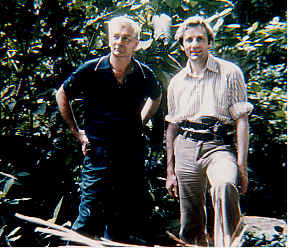
Expedición Cueva de los Tayos 1976
En 1976 Hall catalizó una expedición destacada a la Cueva de los Tayos en el
Ecuador oriental que se involucran una docena de instituciones científicas,
fuerzas armadas de Ecuador y Gran Bretaña, y con la participación del
profesor astronauta Neil Armstrong como Presidente Honorífico.
Después
instalando esta estructura científica, Hall dirigió su atención a la
publicación de Erich von Daniken sobre una supuesta biblioteca metálica
descubierto dentro de las cuevas por el investigador Juan Morícz durante los
medio-sesentas, algo tan asombrosa que no podría racionalizarse dentro de
los conceptos ortodoxos de la historia global.
Odisea
Pronto Hall empezó una odisea al corazón de las enigmas universales, como el
proceso de la Creación, el origen de la humanidad, la Edad de Saturno, la
destrucción de Atlántida, Cattigara, ciudad perdida de Tolomeo, los
crecimientos y derrumbes bruscos de las civilizaciones doradas, los impulsos
auto-destructivos, o 'lemming factor', inherente en la psique colectiva de
la humanidad.
Todos estos unificados con su revelación del Catastrofismo
Interplanetario como el eslabón perdido de toda esta cadena - una cadena
que ahora incluye la biblioteca metálica del perdido Imperio de Tahuantinsuyu del
América del Sur.
Tayos Gold Library
The Odyssey of
Stan Hall
Architect of the Tayos Caves Expedition of 1976
Lest We Forget!
Scottish engineer Stan Hall, was born in Edinburgh and raised in nearby Dunbar a few doors from
the birthplace of conservationist John Muir. As a nine-year old In 1945,
newsreels of blitzed cities and concentration camps opened his mind to a
vision of two kinds of people in the world – in every sense of the words –
builders and destroyers!
In parallel with university studies and an
interdisciplinary career in building he explored ancient engineering,
civilizations and mytho-history, concluding that South America is the 'missing
page of prehistory' and 'interplanetary catastrophism' the missing link in
the Creation – Evolution controversy.
"Senor Hall! Forget Erich von Daniken and
his Gold of the Gods! The best story is in you and if you ever decide to
write it I will help you!"
Juan Morícz (1923-1991)
"We shall save it ... because there is no longer the sight of the Book
of Counsel ... There was once the sight of it, and it was written long
ago ... Great was its account and its description of when was finished
the birth of all heaven and earth ..."
Book of the Popul Vuh, Edmunsen
translation, 1971
Tayos Caves Expedition 1976
In 1976 Hall
catalyzed a landmark expedition to the Cave of the Tayos in
Ecuador involving a dozen institutions, joint special forces, and astronaut
professor Neil Armstrong as Honorary President and participant.
With a
scientific framework installed he later turned to Erich von Däniken's report
of a metal library allegedly found in the caves by Juan Moricz in the mid-1960s,
something unacceptable within an orthodox view of global history and absence
of any ancient script in South America.
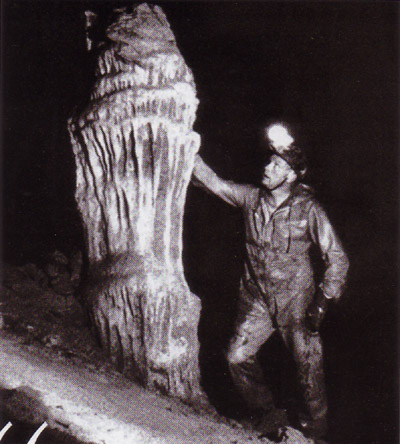
Neil Armstrong: a second small step
Odyssey
So began a personal odyssey to the heart of global enigmas – the Creation
process, origins of mankind, the Golden Age of Saturn, the destruction of
Atlantis, Ptolemy's lost city of Cattigara, the sudden rise and fall of
wonder civilizations, and the subliminal 'lemming factor' inherent in the
collective consciousness of Mankind – enigmas he found unified by
Interplanetary Catastrophism as the missing link of prehistory, part of a
chain that now includes the metal library of the vanished South American
Empire of Tayhuantinsuyu!

Stan Hall and Neil Armstrong Tayos 1976
The question
-
We asked: In July 1969 , the crew of Apollo II left an instrument on the
moon called a "Lunar Laser Ranging Rectro Reflector Array"... basically a 2
foot diameter mirror. What was (is) its purpose?
With thanks to all who replied to the above question (only one person got it
wrong).
-
Answer: for measurements of the Moon's orbit around the Earth to
unprecedented accuracy... Unlike the other scientific experiments left on
the Moon, this reflector requires no power and is still functioning
perfectly ... (Abstracted from a submission by plw12752anderson 28.01.2007)
You are now invited to send your answer to the following:
Question:
What single global cause do you think could anciently link the following
recorded events?
-
The Sun standing still on Mt. Gibeon (Hebrew)
-
The halting of the Sun in its path (Chinese)
-
The Sun not setting for 10 days (Chinese)
-
The Sun standing still on the horizon (Mexican)
-
Gods trying to make the Sun disappear (Japanese)
-
The whole world becoming dark (Japanese)
-
The Sun not seen in the sky for 5 days (Peruvian)
Metal Library
CALCULATED LOCATION OF THE TREASURE CAVE
77º47'34"W and 1º56'00"S
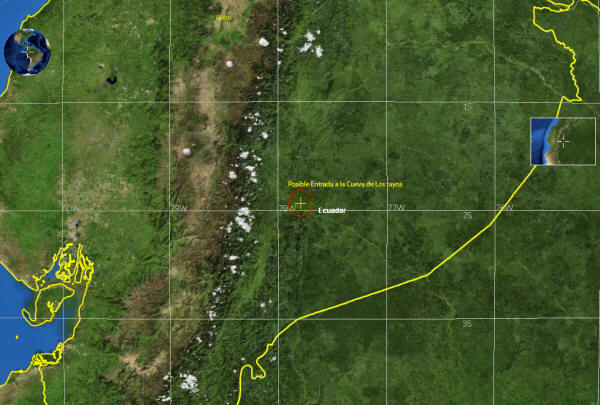
image obtained with
WorldWind
Close to the southern border of the Amazonian
province of Pastaza, Ecuador; marked by a line running due east from Mount
Sangay converging with another running due south from Mount Sumaco:
concealed below river level inside a treacherous section of the Tayos caves
system, some kilometers in length, formed by the River Pastaza.
Separate 'Cave of the Tayos' is on the Rio Coangos
mapped by the 1976
expedition: 78º 13' W 3º 6' S
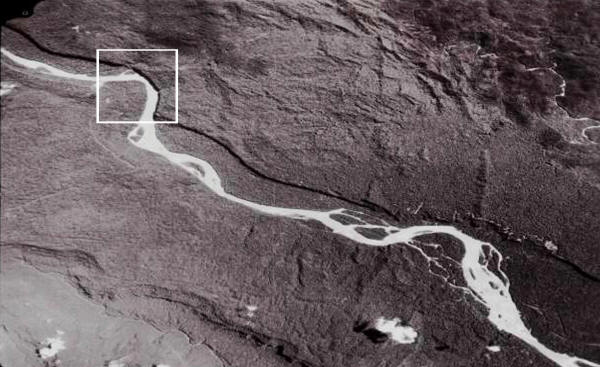
Pastaza River Stretch of Tayu Cave Location
After separate odysseys with Moricz and another key protagonist
Hall broke
his rule of rejecting any treasure, monster or UFO that cannot be dragged up
to his front door, or that Steven Spielberg can replicate, by finally
accepting the Tayos metal library and treasures had to exist!
Packed with
scientific and historical information but lacking an ancient script in South
America he distilled from mytho-history a model of the origins of the Solar
System and Humanity that might accommodate the metal library... and a more astounding 'crystal' library that accompanies it!
Following the deaths of the two key protagonists in the 1990s Hall became
sole custodian of the treasure story.
Realizing such a fantastic tale could
never stand on its own he developed an Optical Relativity model (see
Grailscope) to effect an empirical distillation of data gathered since 1974,
finally emerging with two non-fiction and two fiction manuscripts covering
his analyses and discoveries. These will be published in 2006 to mark the
30th Anniversary of the 1976 Tayos Expedition.
General Description of the Treasure of the Tayu [Tayhuantinsuyu]
-
A library consisting of thousands of metal books on shelves, each
weighing about 20 kilograms, pages stamped on one side with ideographs,
geometric designs and inscriptions.
-
A second library of hard, polished, rectangular, translucent plates, each
with parallel, encrusted channels, laid on gold-leafed trestles.
-
Hundreds of zoomorphic and human statues, some on heavy plinths,
representing various species of animals and insects, also humans in
different positions displaying a variety of emotions.
-
'Metal' bars of various shapes, together with toys and piles of alluvial
gold.
-
Instruments for making buttons and jewelry.
-
Sealed doors (possibly tombs) covered in semi-precious stones.
-
A sarcophagus of translucent material containing a large, gold-leafed,
human skeleton.
The Treasure of the Tayu and Manuscripts of Stan Hall
THE GOLD LIBRARY OF ATLANTIS
"Señor Hall! We are the only legitimates in the Tayos story!"
Petronio Jaramillo A.
(1929-1998)
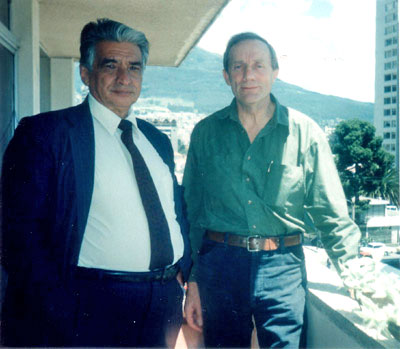
Petronio Jaramillo A. (left) in 1996
Here is the story of events that impelled Stan Hall to organize in a record
18 months from idea to completion an expedition of 100 soldiers and
scientists from a dozen institutions into the Cave of the Tayos in Ecuador,
accompanied by astronaut professor Neil Armstrong as Honorary President and
participant.
Also included is his unique record and analyses of rival claims
about an alleged metal library and other fabulous treasures concealed in the Tayos caves by an astounding civilization!
Hall develops a long-term relationship with Juan Moricz, whose claim in 1969
to have found the metal library was sensationalized in Erich von Daniken’s
‘Gold of the Gods’ published in 1972. When Moricz dies in 1991 Hall meets
with a mysterious missing person in the story, alluded to by Moricz though
not by name. During six years of questions and collaboration, Ecuadorian
citizen Petronio Jaramillo A. is absolutely accepted by Hall as the true
source and custodian of the treasure story.
They fill gaps in their separate
trajectories to complete the picture. Hall is then entrusted with the
details of an enormous treasure, including a metal library of thousands of
volumes - also a second library of hard, polished, transparent tablets that
cannot be scratched with a knife, its existence here disclosed for the first
time!
When Hall is in Britain in 1998 initiating the plan for an official
'expedition of occupation', he receives by telephone the sad news from the
mother of Petronio that he has been assassinated.
With the passing of Juan Moricz and Petronio Jaramillo, the treasure trail might have disappeared.
However, despite an agreement, to safeguard both families, that Jaramillo
would not pinpoint the treasure until an expedition was in the field, Hall
decides to combine the information from Petronio with his interdisciplinary
background and field experience to determine its precise location.
Working
alone, burdened with long, hard years of operating in Ecuador and evading
fringe elements, he finally decides the best course of action is to directly
publish on the world-wide Web.
"The 'Iron Ring' forged by astronomers, historians, evolutionists and
creationists, based on an erroneous identification of the star Sirius for
the planet Venus (Egy: Ast or Aa-set) at the helical rising in 1321 BC,
combined with a rejection of the mytho-historical record of interplanetary
catastrophism and electromagnetism, guarantees a cyclical repetition of the
errors of history!"
Stan Hall
Tayos Expeditions 1969 and 1976
The British-Ecuadorian Tayos Caves expedition of 1976 was essentially a
scientific extension of the 'Moricz Expedition 1969' and the 'Moricz-Hall
Stones Expedition' of 1975.
Below are photographs of some of the locations
and participants, including astronaut-professor Neil A. Armstrong, Honorary
President of the 1976 expedition.
|

Tayos Cave Spectacular
|

Tayos Cathedral:
Moricz Expedition 1969
|
|

Crespi metal plate.
Magyar? Sanskrit? Pali?
|
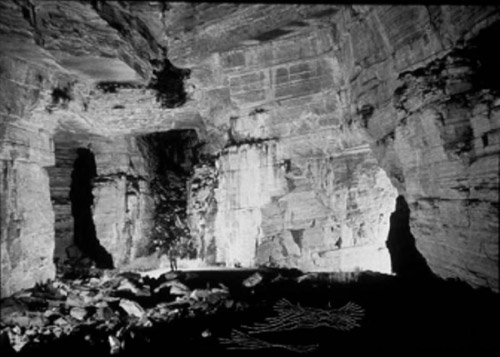
Tayos underworld: Coangos
1976

Tayos Tomb Cave 1976.
Tomb located top of right bank.
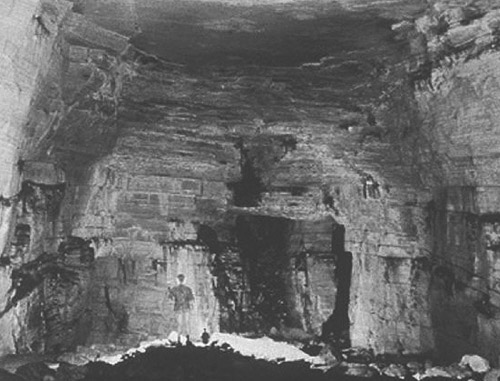
Another doorway enigma
|
|
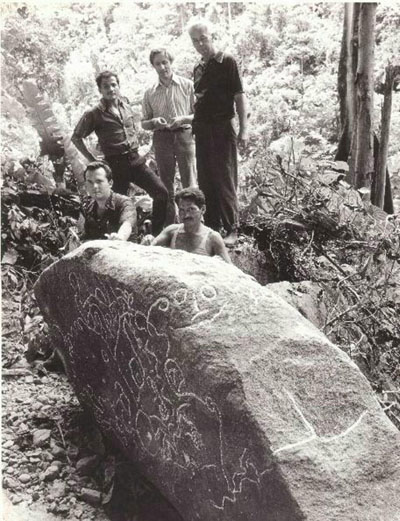
Nivello, Hall, Moricz, Pena & Punin
1975 |
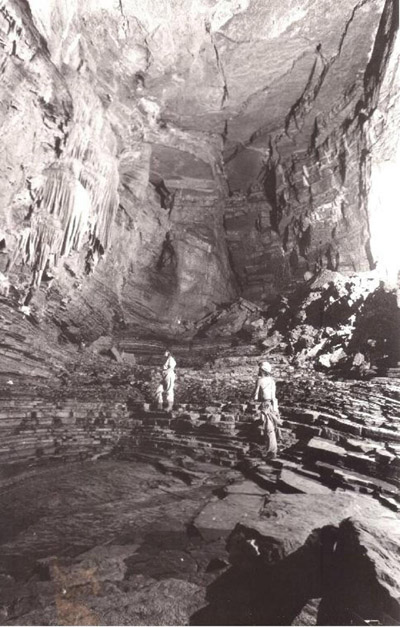
Tayos 'Amphitheatre' |
|

Padre Pedro Porras G.
Tomb Discovery
|

Neil Armstrong:
Second small step
|
|
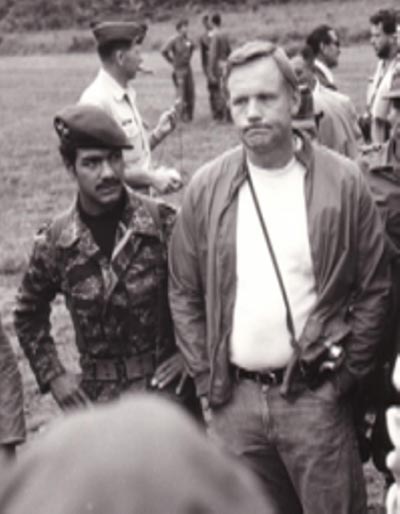
Capt. Luis Hernandez (1995 'Hero of Twintza'),
with Armstrong
|

Armstrong with Holden: deepest part of the cave system |

British Caving and Medical Teams

Ecuadorian Special Forces at the Cave Site




















